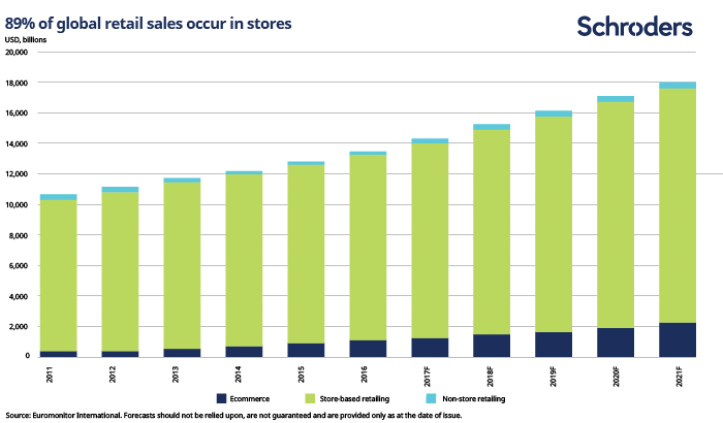by Brad McMillan, CIO, Commonwealth Financial Network
As we close out the third quarter of the year, here’s what we know. It has been a great year and a great quarter for stocks around the world. We’ve seen a really good month for all areas except emerging markets, which pulled back a bit but still posted the strongest quarterly gains overall. Financial assets have been doing much better than expected across the board, and investors remain extremely confident this trend will continue.
You would be forgiven, I think, for wondering why on earth this has happened. After all, expectations were quite low at the start of the year, with worries both here and abroad. Plus, in the past month alone, we have seen three of the most powerful storms ever hit the mainland U.S., devastating several states, as well as missile launches across Japan and credible talk of a pending major war (possibly a nuclear one). So, how have the markets done this well? The answer is a mix of both solid and improving fundamentals and confidence, which can also give us good indications about the future.
A look at the fundamentals
Here in the U.S., economic growth has continued at a solid if not spectacular pace, even as consumer and business confidence has remained strong. Corporate earnings finally moved into the green in a big way this year, with double-digit growth in the past two quarters and more growth expected. Even the Fed seems to be on board, as the news from the latest meeting was more optimistic about the economy than many expected. With a stronger economy, companies continued to expand and hire, resulting in the stronger earnings growth. All perfectly sensible and observable by looking around.
Stocks have responded to these fundamental improvements by rising steadily, just as the economy did. Looking forward—as economic growth should continue through the rest of the year and may accelerate as business investment rises and hurricane repair activity gets going—more appreciation seems quite possible. Here, the news looking forward is good.
The same is likely the case with investor confidence, although that expectation is less solid. With investor confidence and optimism at or close to multiyear highs, there is not much more room for improvement—and more room on the downside. At the same time, with everything that has already happened, that confidence includes a bunch of bad news. It is hard to see what in the short term could shake it.
Outside the U.S., the news has also been good. Economic growth and confidence in Europe have been improving all year and are now at multiyear highs. Emerging markets have benefited from faster global growth and, more recently, from the cheaper dollar. Again, stock market appreciation has been largely due to better fundamentals and, therefore, is likely to be sustainable and even continue to improve.
Looking ahead
September is usually a difficult month for financial markets. But in years when the news is good, the rest of the year is often positive as well. Given the solid foundation of the global economy and the strong levels of confidence, this is a reasonable outcome for this year as well. While we may not (and probably won’t) see as good a fourth quarter as we have seen in the third, more appreciation seems likely. Hopefully, that will indeed be the case.
*****
Brad McMillan is the chief investment officer at Commonwealth Financial Network, the nation's largest privately held independent broker/dealer-RIA. He is the primary spokesperson for Commonwealth's investment divisions. This post originally appeared on The Independent Market Observer, a daily blog authored by Brad McMillan.
Forward-looking statements are based on our reasonable expectations and are not guaranteed. Diversification does not assure a profit or protect against loss in declining markets. There is no guarantee that any objective or goal will be achieved. All indices are unmanaged and investors cannot actually invest directly into an index. Unlike investments, indices do not incur management fees, charges, or expenses. Past performance is not indicative of future results.
Commonwealth Financial Network is the nation's largest privately held independent broker/dealer-RIA. This post originally appeared on Commonwealth Independent Advisor, the firm's corporate blog.
Copyright © Commonwealth Financial Network













